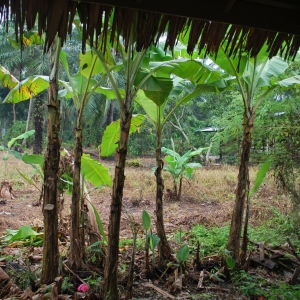Federal Water Tap, August 23: EPA Updates Human Health Guidelines for Pesticides in Drinking Water
The Rundown
- The EPA adds health guidelines for 43 pesticides and updates toxicity levels for 104 others.
- The EPA’s chemicals assessment division analyzes the toxicity of several industrial chemicals.
- The EPA also orders a low-income, majority Black city in Illinois to clean up sewage spills.
- FEMA re-evaluates a flood-risk reduction
- The Bureau of Land Management reviews the coal leasing on federal lands.
And lastly, the House is back in session to consider the $3.5 trillion budget bill.
“Climate stress is often experienced as water stress, something California knows all too well.” – Michael Regan, the EPA administrator, while visiting San Diego to announce a $120 million WIFIA loan to support the city’s water recycling facility.
By the Numbers
$8.2 billion: Funding requests received for the EPA’s WIFIA water infrastructure loan program in 2021. There is more demand than the agency can meet: only $6.5 billion is available. The program targets large projects with regional significance.
News Briefs
Sewage Spills Cleanup
The EPA ordered Cahokia Heights, Illinois, a majority Black city, to eliminate sewage spills.
Cahokia Heights was formed in May 2021 by the merger of three communities across the Mississippi River from St. Louis. The communities have been troubled for years by failing sewage systems.
The order requires the city to develop a plan for inspecting equipment, training staff, and assessing system needs.
The city is in a tough position. It is a high-poverty community and will likely need help with funding any improvements.
In context: The Majority-Black Town Flooded with Sewage
Studies and Reports
Health Guidelines for Pesticides in Drinking Water
The EPA published human health guidelines for 43 pesticides and updated the guidelines for an additional 104 pesticides.
The guidelines indicate the level of the chemical in drinking water at which no health problems are expected to occur. The agency considers cancer and other diseases, and there are different toxicity levels for acute and chronic exposure.
The guidelines, totaling 430 pesticides, are not an enforceable regulatory standard.
Toxicity Review of a PFAS Chemical and Gasoline Additive
The EPA’s chemicals assessment division published draft and final reviews of the toxicity of several industrial chemicals.
The Integrated Risk Information System, or IRIS, completed its review of the gasoline additive ETBE. People can be exposed to the chemical through drinking contaminated groundwater.
IRIS also submitted a draft review of PFBA, a member of the PFAS class of compounds that has contaminated drinking water sources.
The draft review found that PFBA is likely hazardous to the thyroid and liver and can likely stunt hormonal development in children. There was not enough evidence to determine effects on adult fertility or impacts to blood or kidney function.
Public comments will be accepted for 60 days and the draft will be peer reviewed.
On the Radar
Budget Bill in the House
Some House members return this week to take up the $3.5 trillion budget bill that the Senate passed.
House Speaker Nancy Pelosi is attempting to rally her fractious coalition to support the budget reconciliation measure. Any delay, she wrote in a letter to colleagues “threatens the timetable for delivering the historic progress and the transformative vision that Democrats share.”
Flood Risk Reduction
FEMA indicated that it is re-evaluating a voluntary program for reducing community flood risk.
Locations that sign up for the Community Rating System agree to do more than the minimum federal requirements to protect flood-prone properties. The reward is a discount on flood insurance premiums – from 5 percent to 45 percent depending on which flood-protection actions are taken.
FEMA wants public input on how the CRS program can be improved – how it aligns with knowledge of future flood risk, how communities can be encouraged to participate, and how it can be more equitable to communities of color and low-income areas.
Submit comments via www.regulations.gov using docket number FEMA-2021-0021. Comments are due September 22.
Coal Leasing Review
The Bureau of Land Management is seeking public comment as it begins reviewing the federal government’s coal leasing program.
A broad review of leasing federal lands for coal production was initiated at the end of the Obama administration, halted by Trump officials, and reinstated once President Biden was in office.
Submit comments to BLM_HQ_320_CoalProgramReview@blm.gov. Comments are due September 20.
Federal Water Tap is a weekly digest spotting trends in U.S. government water policy. To get more water news, follow Circle of Blue on Twitter and sign up for our newsletter.
Brett writes about agriculture, energy, infrastructure, and the politics and economics of water in the United States. He also writes the Federal Water Tap, Circle of Blue’s weekly digest of U.S. government water news. He is the winner of two Society of Environmental Journalists reporting awards, one of the top honors in American environmental journalism: first place for explanatory reporting for a series on septic system pollution in the United States(2016) and third place for beat reporting in a small market (2014). He received the Sierra Club’s Distinguished Service Award in 2018. Brett lives in Seattle, where he hikes the mountains and bakes pies. Contact Brett Walton






Leave a Reply
Want to join the discussion?Feel free to contribute!